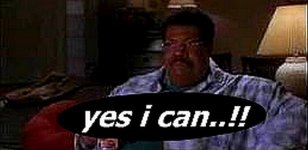the first line of your post tells the story
So last night I was too down to start this. Hopefully I'm over it
My question is:
For most of you how did you, when did you, did "time will tell", get over your emotional road block when competing?
I started winning when I wasn't supposed to a long long time ago when I was a typical insecure selfconscious young teenager. While terms like self confidence can be used I have always preferred ego. Ego makes it plain that the feeling(s) can be separate from performance and what is happening around you.
Right now for whatever reason you have a pretty large dent in your ego. The first line of your post revealed that. People with healthy egos don't get down on themselves for longer than moments. Miss a shot or blow shape? Accept it, acknowledge it was a dumb move but then finish the thought with "but that isn't me". The errors are the exception, the quality play is the norm.
You say you play very well at times so I suspect your pool game is pretty sound. No sense doing endless drills when you can go to the source of your problem. When you wake up in the morning, say out loud "I am a winner!" Say it three or four times solidly and with conviction. Every time you pass by a mirror, stop, look yourself in the eye, and tell yourself you are a winner. Can say you are a champion or whatever cranks your tractor but say it with conviction. I'll let a silent statement repeated for a minute or two be OK if you are where you will get locked up for talking to yourself out loud. Talking out loud and/or writing statements has far more power than just thoughts though so always try to do one or the other many times a day.
Write three positive statements about yourself that are true. Write another that isn't true now but can be true in the near future. When you make it true substitute another statement that should be true and you can make true.
You have convinced your unconscious that you can't handle pressure. Now you have to convince it you can. Do this with positive statements, saying them, writing them, listening to them, over and over until you know deep in your core that you are a winner who can call up your skills at will. Tell yourself that you thrive on pressure and are at your best in tough conditions.
You should be able to go into competition mode when you pick up your stick for your inning and be able to drop out of competition mode every time you set your stick down after an inning, which is something you should get in the habit of doing. No expectations while the other player is at the table, watch with enough interest to keep up with what is going on, no more. You are just a spectator. Unless you are on a very tight shot clock you can assess what good and harm has been done to the pattern once you are back at the table.
When you are playing poorly I strongly suspect you aren't really visualizing the shot before shooting. Before shooting, try to see the shot, the cue ball leaving the tip and striking the object ball. The exact paths and speeds of the two balls until the object ball is pocketed and the cue ball stops in the position you wanted it to. Take an extra moment to really lock in to where you want the cue ball to stop at, not an area, a spot on the table no bigger than the contact patch of the cue ball. Feel preshot routine, the impact as the stick hits the cue ball, the followthrough. Hear the collisions. Try to smell the chalk dust and powder in the air. The more fully you can imagine the shot before shooting it the more likely you are to get exactly the results you want. Start the visualization with settling into the shot and play it through until the balls stop in real time. With practice you get better and better at the whole visualization thing.
Your weakness at the moment is in your emotional game. You will get the fastest results working on it directly. This is one place you can genuinely "fake it before you make it." Almost impossible for anything good to happen until you really believe in yourself deep inside. Almost guaranteed that good will happen when you really expect it to.
Hu
